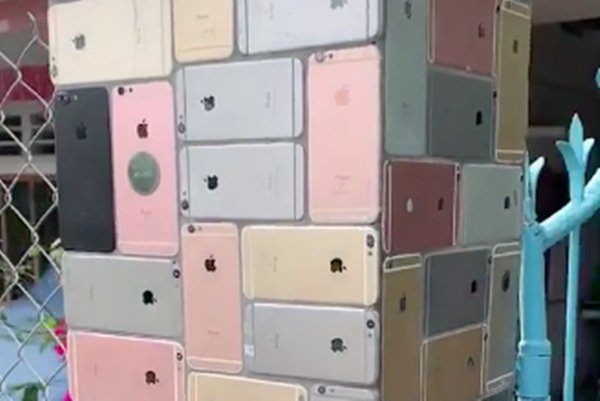Apple is suing former recycling partner GEEP Canada — now a part of Quantum Lifecycle Partners — for allegedly stealing and reselling at least 103,845 iPhones, iPads and Watches that it was hired to disassemble.
“At least 11,766 pounds of Apple devices left GEEP’s premises without being destroyed - a fact that GEEP itself confirmed,” reads a portion of Apple’s complaint, as reported by The Logic (via AppleInsider).
Apple sent the recycling firm over 500,000 iPhones, iPads, and Apple Watches between January 2015 and December 2017, according to The Logic’s report.
When Apple did an audit, it discovered 18 percent of those devices were still accessing the internet through cellular networks. That 18 percent doesn’t count Apple devices without a cellular radio, so it’s possible an even higher percentage of the gadgets were resold.
Apple seeks to obtain at least $31 million Canadian dollars (roughly $22.7 million USD) from its former partner. The recycling firm denies all wrongdoing, but it doesn’t deny there was a theft — it has reportedly filed a third-party suit claiming three employees stole the devices on their own behalf. Apple disagrees, arguing that these employees were in fact senior management at the recycling firm, according to The Logic.
:no_upscale()/cdn.vox-cdn.com/uploads/chorus_asset/file/21933288/Apple_recycling_robot.jpg)
Image: Apple Newsroom
Last year, humans left behind a record amount of e-waste adding up to 53.6 million metric tons of discarded phones, computers, appliances, and other gadgets.
Like other tech companies, Apple has been trying to improve its environmental practices, including an effort to move recycling in-house with its own disassembly robots Daisy and Dave, which are designed to recover iPhone components that traditional recyclers can’t.
However, the company still relies on other partners to recover valuable material from used devices, and from 2015 to 2018 GEEP Canada was one of them.
Refurbishing and reselling devices was also part of GEEP’s business, though: while the company offered multiple e-waste management services during that period, it also explicitly stated on its website that its mission was to “encourage reuse whenever possible.”
But from Apple’s standpoint, reselling these devices would not have been OK. Just because products were able to be resold on the grey market doesn’t mean they met Apple’s quality or safety standards.
“Products sent for recycling are no longer adequate to sell to consumers and if they are rebuilt with counterfeit parts they could cause serious safety issues, including electrical or battery defects,” the company tells The Verge.
Apple filed the complaint in January 2020, but it’s known about the thefts since they were discovered between 2017 and 2018. Apple hasn’t worked with GEEP Canada since.
In 2019, we published a report about how one poster child of recycling firms, Total Reclaim, advertised its ethical practices while actually shipping off hazardous waste overseas without following regulations.
Latest Stories
-
Trump picks Pam Bondi as attorney general after Matt Gaetz withdraws
12 mins -
Providing quality seeds to farmers is first step towards achieving food security in Ghana
23 mins -
Give direct access to Global Health Fund – Civil Society calls allocations
3 hours -
Trudeau plays Santa with seasonal tax break
4 hours -
Prince Harry jokes in tattoo sketch for Invictus
4 hours -
Akufo-Addo commissions 200MW plant to boost economic growth
4 hours -
Smallholder farmers to make use of Ghana Commodity Exchange
4 hours -
I want to focus more on my education – Chidimma Adetshina quits pageantry
4 hours -
Priest replaced after Sabrina Carpenter shoots music video in his church
5 hours -
Duct-taped banana artwork sells for $6.2m in NYC
5 hours -
Arrest warrants issued for Netanyahu, Gallant and Hamas commander over alleged war crimes
5 hours -
Actors Jonathan Majors and Meagan Good are engaged
5 hours -
Expired rice saga: A ‘best before date’ can be extended – Food and Agriculture Engineer
5 hours -
Why I rejected Range Rover gift from a man – Tiwa Savage
5 hours -
KNUST Engineering College honours Telecel Ghana CEO at Alumni Excellence Awards
6 hours

